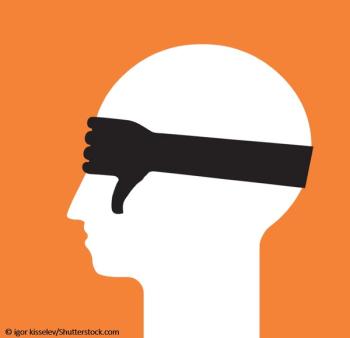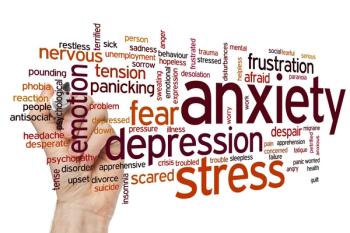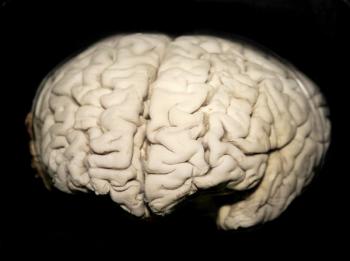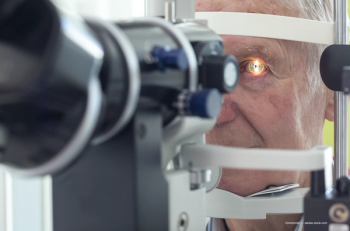
The iconic scene when George C. Scott slaps the soldier with PTSD in Patton and calls him a “yellow-bellied coward” mirrors the historic and continued ambivalence of the military toward the psychological wounds of war.

The iconic scene when George C. Scott slaps the soldier with PTSD in Patton and calls him a “yellow-bellied coward” mirrors the historic and continued ambivalence of the military toward the psychological wounds of war.

Patients who use educational resources, such as the Depression Center Toolkit, are much more likely to become an active and engaged participant in managing his or her own health.

They love to talk like air traffic controllers: “Angle the spinal needle 20 degrees and push gently toward the midline.” And though I don’t say “Roger”...

As we approach the end of the year, our collection of eulogies remind us of life's fragile nature.

Many of our patients are in distress, coping with “eco-anxiety” in ways that we have up to now not experienced.

Educational privilege may play major role in age-related memory loss and dementia risk.

“Even after the Pittsburgh shootings, our ability to empathize suggests otherwise,” writes Ronald W. Pies, MD, in a commentary regarding the nature and origin of hatred.

Let us look at two major trends in our evolving understanding of this complex mood disorder and its treatment, to wrap up 2018 and to consider the year ahead.

Coenzyme Q10-a nutrient that has improved well-being, vitality, and energy in small studies of patients with breast cancer, the elderly, and veterans-was found to treat bipolar depression in a new randomized controlled trial.

An assessment of what has been accomplished, how the field is changing, and new directions for scholarship as we forge ahead into the next year.

This Special Report offers insight into gender vulnerabilities and clinical implications in areas like schizophrenia, Alzheimer dementia, and anxiety disorders.

A deep dive into how schizophrenia affects men versus women.

Clinicians can help raise awareness of the role of sex hormones in persistent anxiety by integrating 5 considerations into their practice.

Several misconceptions exist about the study of sex and gender in the AD field. The initial focus of this article is on whether women are at greater risk.

Dependence on alcohol and tobacco or illicit drugs is generally higher in men, but the gender gap is narrowing at an alarming rate, especially in adolescents.

As it turns out, modern psychiatry reflects some of the values and concepts held by early civilizations.

The most scorching inditement of racism yet in film. Warning: spoilers.

Psychiatrists and other mental-health clinicians are being increasingly called upon to respond to patients’ worries about the destabilization of many aspects of our world.

We invite you to write an article about a day in your life for a series of articles about psychiatry and self-disclosure, with the help of the editors at Psychiatric Times and Editorial Board member H. Steven Moffic, MD.

Blue spectrum light can worsen two systems that are already fragile in people with mood disorders: sleep and circadian rhythms. Fortunately, there are simple solutions to correct this problem.

Homeless men in Chinatown doorways flick cigarettes and cough, while a dozen nurses forge into Beach Street winter...

Study findings suggest that quetiapine is not a major teratogen, but the risk of malformations must be considered in the context of therapeutic risk-benefit balance.

A look at therapist Esther Perel’s podcast on couples therapy, Where Should We Begin?

While many deaths due to opioid overdoses are accidental, there a growing body of evidence that some cases were intentional and that the presence of pain played a role in the decision to end life.

Sleep disturbances have been identified as a suicide risk factor, yet hypnotic medications, which are often used to treat sleep issues, have been linked to suicide-related thoughts, plans, and attempts. What’s the best way to assess and treat sleep disturbances in patients at risk of suicide?

An estimated 12 billion working days are lost due to mental illness every year, according to a new report.

A chance encounter with a patient who had been slowly and painfully emerging from under the oppressive burden of a recent life-threatening illness and impairing mood symptoms changed everything for all parties involved.

Cataract surgery may have a salutary effect on the trajectory of cognitive decline.

A review of glucose and lipid-related biomarkers and the antidepressant response to infliximab in patients with treatment-resistant depression.

Three simple steps may better align your practice with available data on the efficacy and safety of thyroid supplementation in physiologic doses.